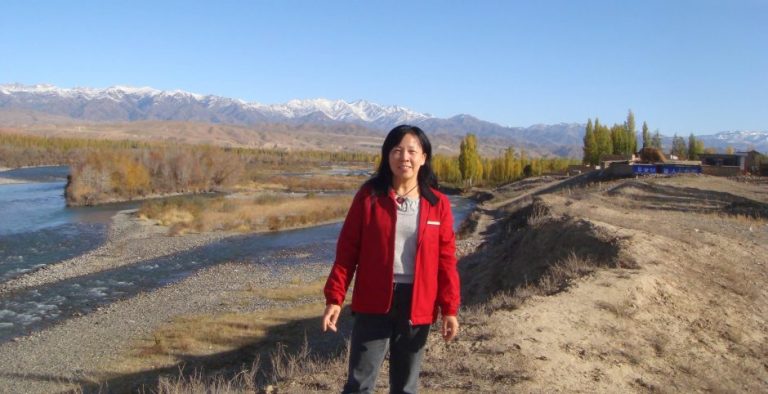Sept. 6: Seed Saving, Participatory Plant Breeding, and Community Supported Agriculture: multi-actor innovation platforms to support small scale farming in Southwest China with Dr. Yiching Song
September 6, 2017 12:00 p.m. – 1:00 p.m. MacMillan Building, Room 258

About Dr. Yiching Song:
Dr. Yiching Song obtained her Ph.D in rural sociology and rural development in Wageningen University, in the Netherlands in 1998. Since 2000, she has been a senior research fellow in the Centre for Chinese Agricultural Policy (CCAP), Chinese Academy of Science. She is also a lecture professor of the College of Humanity and Development of China Agricultural University and also hold the same position in Jilin Agricultural University. She has been appointed as a visiting senior research fellow in the China Centre for Intellectual Property in Agriculture (CCIPA), Chinese Academy of Agricultural Science. Her research focuses on sustainable agricultural and rural development policies in China covering a range of several related areas like agricultural research and extension, biodiversity and related IPR and ABS issues, rural community based development and farmer organization, and gender and related social issues, etc. Her main research methodology is participatory action research and she is leading a participatory action research program under the CCAP. For details please visit www.parinchina.org.
About Dr. Song’s Talk:
This paper presents the author and her team’s 15 year Participatory Plant Breeding (PPB) program in SW China, which has linked poor ethnic mountain farmers with crop scientists at national and provincial level. Through community based PPB, working with farmers, maize and rice varieties have been conserved, improved and developed with both higher yields and improved resilience to drought and pests, resulting in greatly improved variety adoption rates, and many resilient local landraces have been improved and conserved. PPB has also enhanced awareness of the value of traditional knowledge and local landraces amongst farmers and agricultural scientists.
Based on these initial achievements, PPB farmers and communities have gained more interest in value adding to their own local quality biocultural products and seeds. This has led to further institutional and technological innovations for Community Supported Agriculture (CSA), which are built up from traditional farming knowledge to meet consumers’ increasing needs for safe and quality food. By linking PPB communities to a series of ecological/organic restaurants in urban areas, CSA has spurred a revival of agroecological practices such as duck-in-rice pest control; reversed biodiversity loss by reviving several heritage varieties; and significantly enhanced household incomes.
Yet, the CSA system mainly relies on individual trust, rather than on any formal or organic certification, and lacks institutions to provide guarantees of origin and quality as well as fair and equal benefit for both consumers and producers, especially for small farmers,. This is a challenge not only for the PPB communities in SW China but also for the whole country. There is a big increase in quality, local biocultural products due to environmental concerns and food safety issues as well as income increase in China, leading to growing consumer demand. Yet, certification and guarantee and fair benefit sharing institutions are insufficient or missing, especially for local and biocultural products by small farmers in remote rural communities. At same time, national wide, crop biodiversity and farmers’ seeds are losing at an alarming speed due to industry agriculture.
To address these challenges at both action and policy levels, CCAP teamed up with the Liang Shuming Rural Reconstruction Centre and the Third World Network has been working together with 32 PPB communities, scientific institutes, NGOs and policy makers, had established a national “Farmer Seed Network” in China in December 2013. The Network has started exploring guarantee institutions for biocultural products and other community-based products like PPB seed. More important, The Farmer Seed Network (FSN) works as a multi-actor innovation platform linking farmers and scientists and policy makers through PPB, CSA and participatory guarantee system (PGS) institutions for direct interaction, collaboration and dialogue.